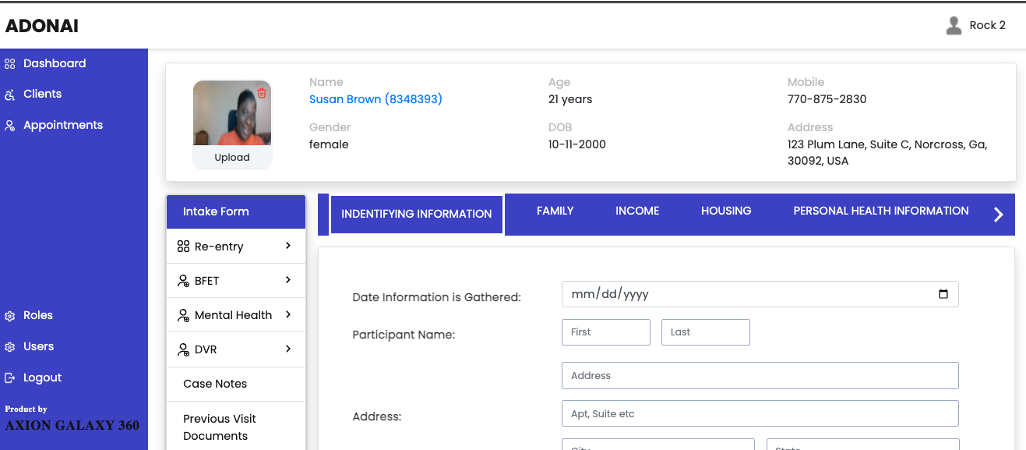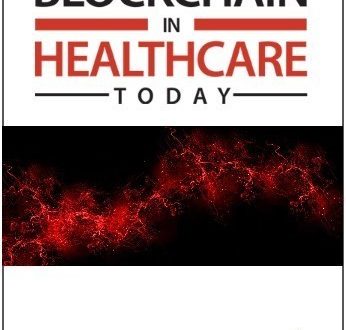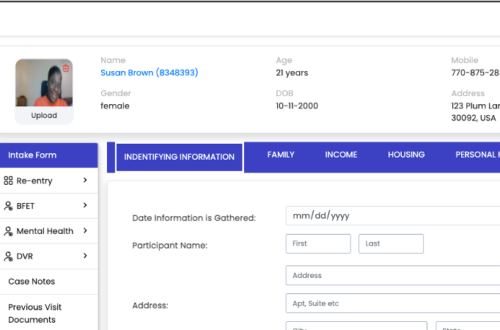Exponential HealthTech Advisors launched v1.0.0 of its blockchain enabled case management software – Axion Galaxy 360 Holistic Management Network. It features fully integrated case management, and scheduling. Adding Telehealth functionality is in progress. Axion Galaxy 360 features include: HIPAA compliant blockchain infrastructure Client Demographics Client Scheduling Case Management Network Client Portal Security Support Click Here to Request A Demo
-
-
Training Review
-
Video: Blockchain & Data Science by Dr. Ingraham. Presented to Women in Data, Trinidad & Tobago
-
The Fourth Industrial Revolution of Healthcare Information Technology: Key Business Components to Unlock the Value of a Blockchain-Enabled Solution
Ann Ingraham, Ph.D. Exponential HealthTech Advisors, LLC Jim St. Clair Dinocrates Group LLC Abstract Editor’s note: This article is one of an ongoing series covering topics published in conjunction with the Health Information Management and Systems Society (HIMSS) describing the development of blockchain technology and its applicability to healthcare. As described by the World Economic Forum (WEF),1 the fourth industrial revolution is here and is changing business models across every industry vertical. This revolution includes digital technology, big data, artificial intelligence, distributed ledger technology (DLT, or blockchain), and analytics, and represents new ways in which technology is being integrated into societies. This changing interaction with technology will impact business models. Traditional…
-
Blockchain, Interoperability, and Self-Sovereign Identity: Trust Me, It’s My Data
I am so thankful to the HIMSS and BHTY teams for the opportunity to co-author this peer-reviewed article: Blockchain, Interoperability, and Self-Sovereign Identity: Trust Me, It’s My Data. I am passionate about leveraging healthcare information technology to improve care delivery and to satisfy the tenets of the Quadruple Aim. The answer to influencing the change in care delivery and to promote interoperability is in the data….”The current interoperability processes for data exchange result in fragmentation and lack of aggregation, impacting patient identity, consent management, and access management across stakeholders. Patients lack the ability to administer and transfer consent in managing their own data.” Yes, problems exist, however, let’s consider these…
-
Dr. Ingraham co-authors her first HIMSS blogpost
Longstanding interoperability challenges prompted the creation of a number of public initiatives, all aimed at addressing the need for greater data flow, increased security, and trust and accountability between health entities. The Trusted Exchange Framework and Common Agreement (TEFCA)—led by the Office of the National Coordinator for Health Information Technology and born out of the 21st Century Cures Act—aims to foster a health ecosystem that allows for free data flow of electronic health information (EHI) between separate health information networks (HINs). TEFCA is composed of two parts: Trusted Exchange Framework (TEF) Common Agreement (CA) These work in tandem to establish the technical and legal requirements needed to support sharing of…
-
Blockchain in Healthcare: Blockchain Reducing the Interoperability Gap (videos)
The GBA Symposium on the Future of Money, Governance & the Law included a discussion about Blockchain in Healthcare. As part of the symposium, Dr. Ann Ingraham discussed the awareness and possibilities of leveraging blockchain in healthcare to reduce the technology interoperability gap. Nationwide whole patient care coordination is hampered because of the lack of healthcare interoperability. The lack of interoperability negatively impacts the seamless flow of health information across the care continuum to the right people, at the right place, and at the right time to better inform decision-making, improve the health of the individual, community, and population, and to facilitate the Quadruple Aim. Dr. Ann Ingraham brought awareness…



